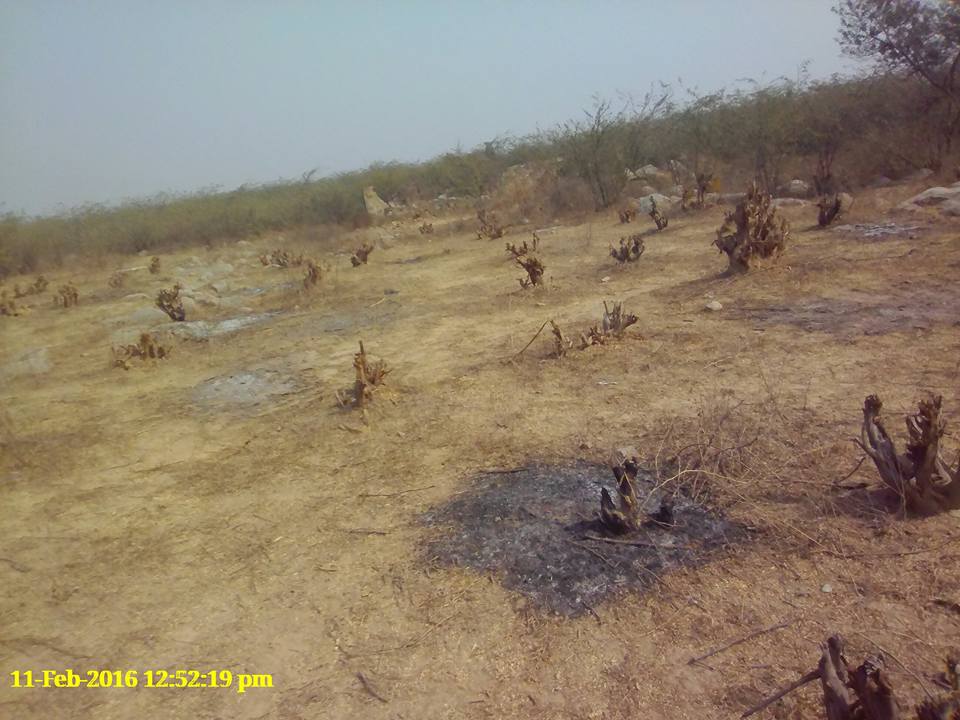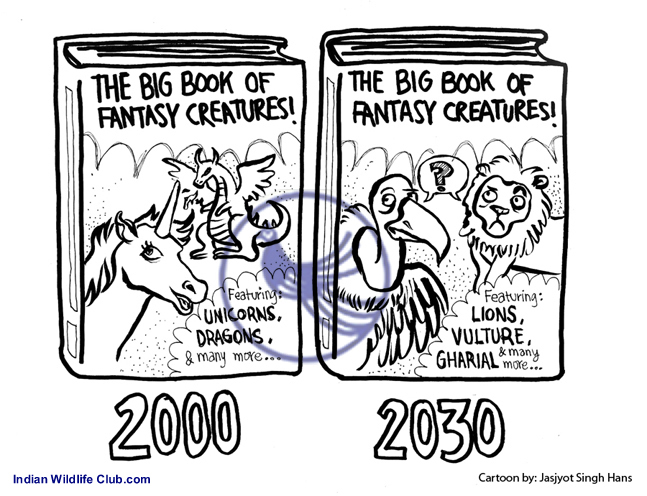When Will Corporates Bite The Bullet?
-Usha Nair
‘The superior man seeks what is right; the inferior one what is profitable’-Confucius
The reported clearance of over 1000 acres or more by the Art of Living on the eco-sensitive floodplains of the river Yamuna in India, for the purpose of holding a cultural festival, is the latest in a series of examples, of the scant respect given to environmental
issues by Corporates the world over. Last year, fires burned through 2.6m hectares of Indonesia, blanketing parts of Southeast Asia in a noxious haze that closed schools and disrupted flights. Various countries have been experiencing their worst winters in
decades, the hottest summers on record or the wettest season in centuries. These instances, and there are many more, beg the critical question-how many corporates globally, have a grander vision than the mere focus on the bottom-line of their balance sheets?
One of the crucial problems facing the world today is the indifference of large corporates towards maintaining the ecological equilibrium. ‘At the moment they(forests) are worth more dead than alive-for soya, beef, for palm oil and for logging, feeding the
demand from other countries’(Prince Charles).When will Corporates wake-up to the fact that economic sustainability is ecological sustainability?

Trees cut in Mangar Forest area, Haryana. Photo by Sunil Harsana
Tropical rainforests cover 7% of the earth, but contain 50 % of the global biodiversity. Deforestation and forest degradation accounts for approximately 15% of the world’s greenhouse gas emissions. Land use change for agriculture is the main driver of
deforestation, and over two-thirds of the tropical deforestation is driven by mainly a few commodities: timber, palm oil, soya, paper & pulp, beef & leather, which in turn, contribute to approx.50% of the packaged products in the supermarkets. Forests 500,
a rating agency for rain forests, reports that an area of approx. 50 football fields are cleared every minute of every day. The call to Corporates, investors and Governments today is to remove deforestation from their global supply chains and switch to sustainable
procurement, production and financing options by 2020. The erosion of world’s natural capital has been going on for decades. By some estimates, the global economy is incurring natural capital costs of US$7.3 trillion/year, or 13% of global output. (CDP Worldwide)
Yet how many corporates are willing to alter/modify/introduce systemic changes to their business operations towards an environmentally sustainable economy. Today, there are agencies to assess and manage corporate exposures to environmental risks-so it is not
information or knowledge that is wanting!! But so long as emission reporting and commitments to reductions of gas emissions remain voluntary, and not mandatory, the pace of progress will remain tardy. It may take years for emission disclosures to become an
industry norm, as it remains on the back-burner, behind greater priorities of profitable operations and stakeholder satisfaction.

Trees burnt in Mangar forest area, Haryana. Photo by Sunil Harsana
Corporations, investors and governments must take responsibility to create the systemic changes we need for an environmentally sustainable economy. Greenpeace proclaims that if corporates have the power to destroy the world’s forests, they also have the
power to save them. They suggest that corporates should adopt a zero deforestation policy, clean-up the supply chain by holding suppliers accountable; incentivise usage of recycled wood, pulp, paper and fibre. Similarly investors can exhibit preference for
companies which adopt energy efficient process, decouple business growth from carbon emissions and integrate climate change into business strategies and operations. Governments must commit to work towards a low carbon and sustainable economy, and towards this
goal, they must adopt and enforce forest policies that promote reforestation, afforestation and reduction of deforestation. Even consumers can leverage the power of purchase by opting for recycled or certified wood products, support brands with zero deforestation
policies, and persuade other consumers to do the same.
Much debate has recently arisen over China’s and India’s responsibilities as related to climate protection. These two countries have repeatedly pleaded that their emissions be judged on a per-capita basis, since their per-capita emissions are very low
in comparison to those of the advanced Western nations, and they have thus argued that the rest of the world should not insist that they slash emissions. Thus Prime Minister Modi of India enunciates the principle of Common but Differentiated responsibilities
emphasising India’s right to grow even if net carbon emissions increase. In contrast, Western powers have maintained that the Chinese and Indian governments must take action if a global climate-protection plan is to be scientifically, economically, and politically
viable.
An increasing number of companies, investors and governments are acknowledging their role in the deforestation economy and have begun to make public commitments to prevent deforestation in agricultural supply chains. In September 2014, they met to sign
the New York Declaration on Forests, committing to support the goal to remove deforestation from agricultural production by 2020. This agreement mirrors an earlier pledge by the Consumer Goods Forum, a global alliance of 400 companies, to achieve zero net
deforestation supply chains by 2020. Similar commitments have been made within the financial community, most notably through the Banking Environment Initiative. The Heads of State from 196 countries, recognising the increasing threat of air pollution and the
importance of preserving forests, agreed at the recently concluded Conference on Climate Change in Paris in December 2015, to help developing countries by providing $100 billion a year from 2020 onwards for protecting their forests, reducing emissions from
deforestation and degradation (REDD+), and as incentives to replant. However, while these leaders have acknowledged the reputational, legislative and operational risks posed by deforestation, many have yet to act to ensure the commodities they produce or procure
do not contribute to further loss of tropical forests.

Students of a municipal school in Mumbai participate in a sapling plantation drive organised by TIL on June 11, 2015 to commemorate World Environment Day
The research undertaken by ‘Forest 500’ supports the view that if the top global 500 corporate entities switch to sustainable alternatives, there would be a dramatic reduction in deforestation. The agency objectively identifies and ranks the top 500 entities
that have large-scale influence over forest risk commodity supply chains, holding these companies, investors, and governments accountable for their actions, by indicating the shortcomings and gaps in their commitments, and highlighting where greater action
is required to achieve overarching deforestation commitments. Their analysis indicates that while some companies like Nestle, Unilever, etc. have strong policies to reduce deforestation, other influential companies have still to take any action in this regard.
It is imperative that these powerful entities place their money and actions towards producing sustainably.
As zero deforestation policies gain momentum, companies and investors are increasingly aware that their operations, reputation and most worryingly, their bottom lines are at risk from environmental crisis. How long then will Corporates take to bite the
bullet?

Cartoon by Jasjyot Singh Hans
(Usha Nair is a nature lover and can be reached at ushaenvironment@gmail.com)